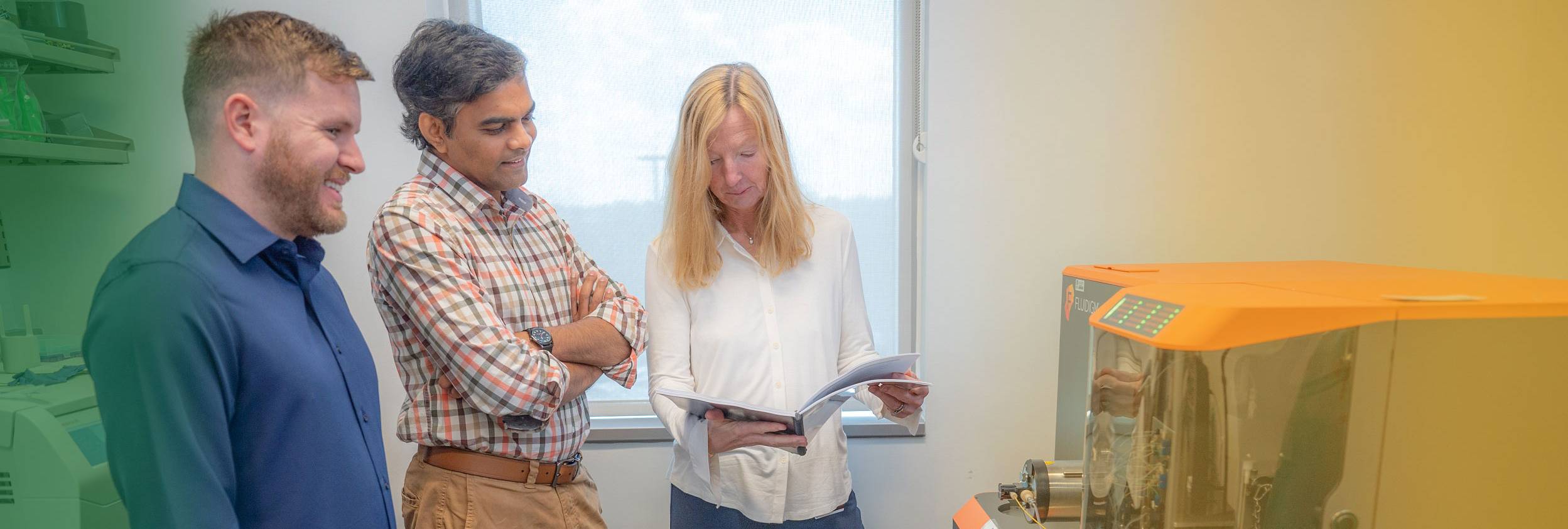
Outside advisors and collaborators
Leaders in immunology research from around the U.S. comprise our Scientific Advisory Board, which provides expert counsel to IMMCG’s leadership to guide the growth and evolution of the center.
The board is comprised of:
Jane Buckner, MD
President, Benaroya Research Institute, Seattle, Washington
Member, Center for Translational Immunology, BRI
Mark Davis, PhD
Director, Stanford Institute for Immunity, Transplantation & Infection
Burt and Marion Avery Family Professor, Stanford University
Dr. Davis identified and cloned the T cell receptor (TCR), a highly polymorphic αβ heterodimer with enormous diversity. Billions of different αβ TCRs are generated by recombination of short segments of DNA (V, D, J) that enable precisely targeted immune responses.
Kristin Hogquist, PhD
Professor, University of Minnesota, Department of Laboratory Medicine and Pathology
David M. Brown, MD Professorship in Laboratory Medicine and Pathology
Laboratory Medicine and Pathology Vice Chair for Research
Associate Director, Center for Immunology
Associate Dean, Medical School, Foundational Research and Gender Equity
Dr. Hogquist is recognized for her work on T cell development in the thymus. In particular, she studies the selection and maturation events that follow the production of a functional T cell receptor, and how this leads to an immune system that is functional and safe.
Mitch Kronenberg, PhD
Professor and President Emeritus, La Jolla Institute for Immunology
Dr. Kronenberg is a leader in studying innate-like T cells and his laboratory identified several glycolipid antigens from bacteria that activate natural killer T cells to prevent infections. The lab also studies the regulation of the mucosal immune system and the pathogenesis of inflammatory bowel disease.
Ira Tabas, MD, PhD
Richard J. Stock Professor and Vice-Chair of Research, Department of Medicine, Columbia
University
Professor of Pathology & Cell Biology (in Physiology and Cellular Biophysics), Columbia
University Medical Center
Dr. Tabas studies the cellular biology of cardiometabolic disease, with an emphasis
on the molecular-cellular mechanisms of advanced atherosclerosis and hepatic insulin
resistance and NASH in obesity, and the links between these processes.
The counsel and guidance provided by the Scientific Advisory Board members takes several forms:
- Collaborative grant opportunities such as PPGs, NIH contracts and proposal calls
- Recruitment of immunology research faculty
- Evaluation of tenured faculty every five years
- Evaluation / advisement of junior IMMCG scientists every three years
- Immunology-related training programs for undergraduates, graduate students and postdocs
- Speaking at the IMMCG Seminar Series
- Evaluation of research core facilities and recommendations on equipment updates, new cores